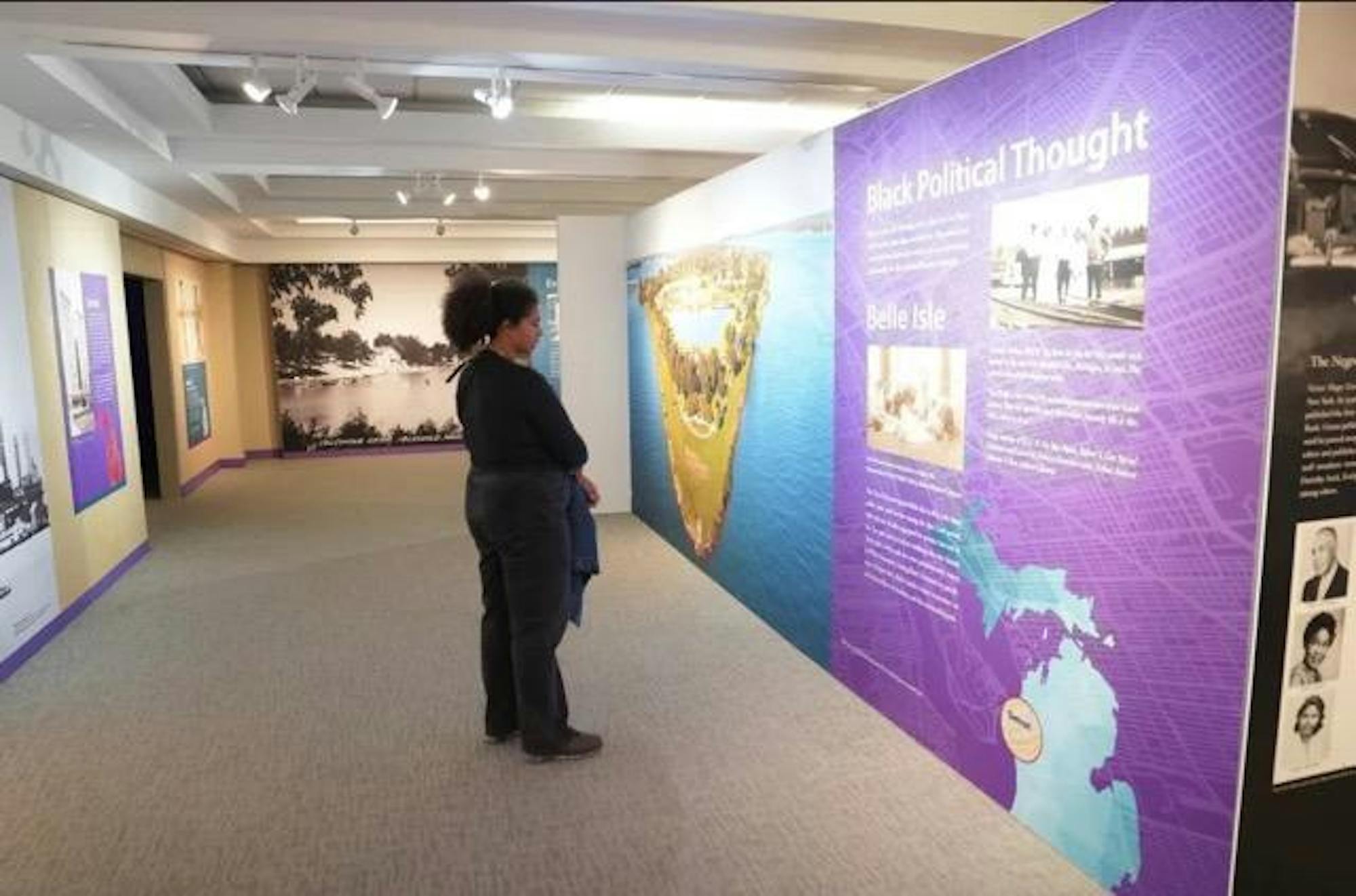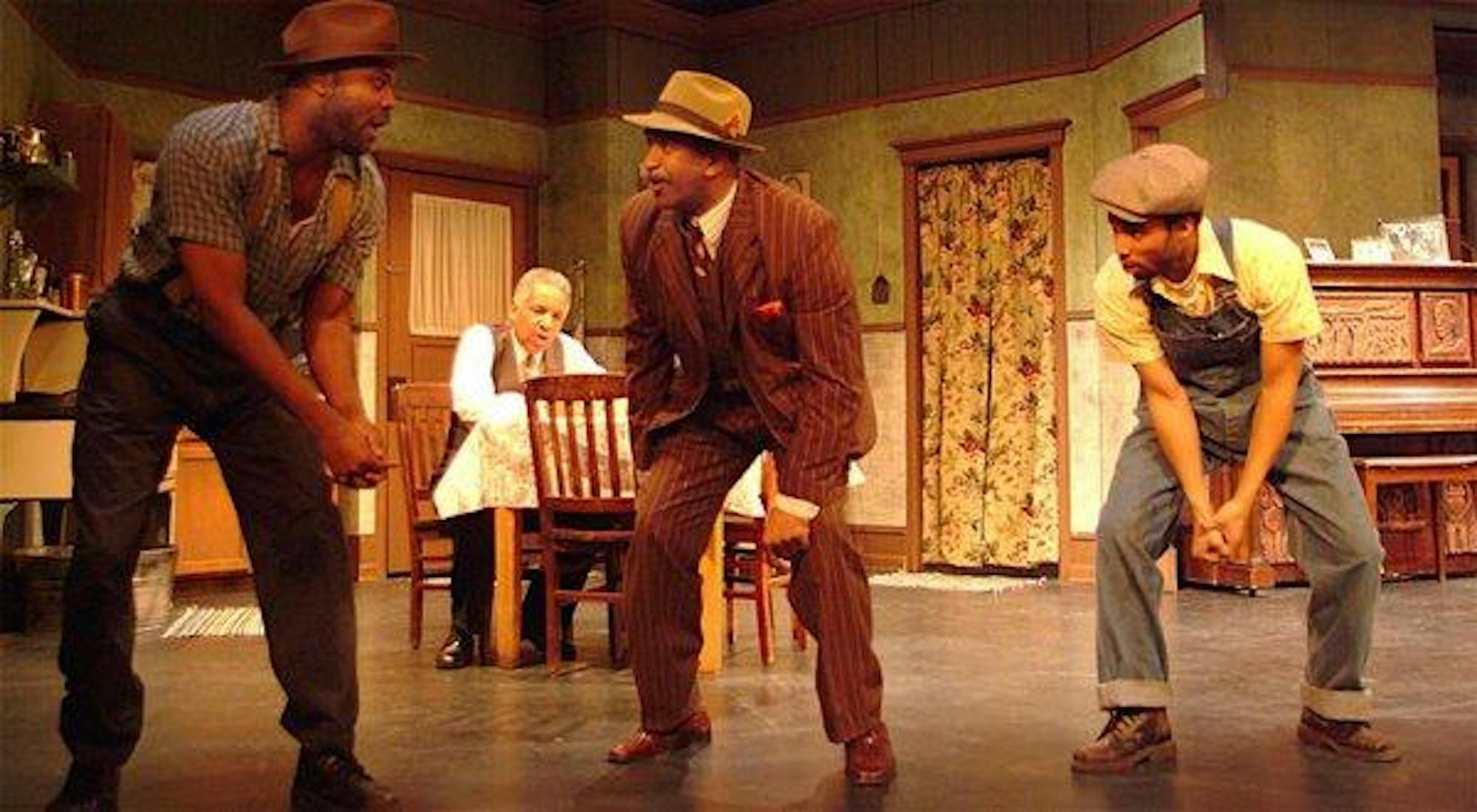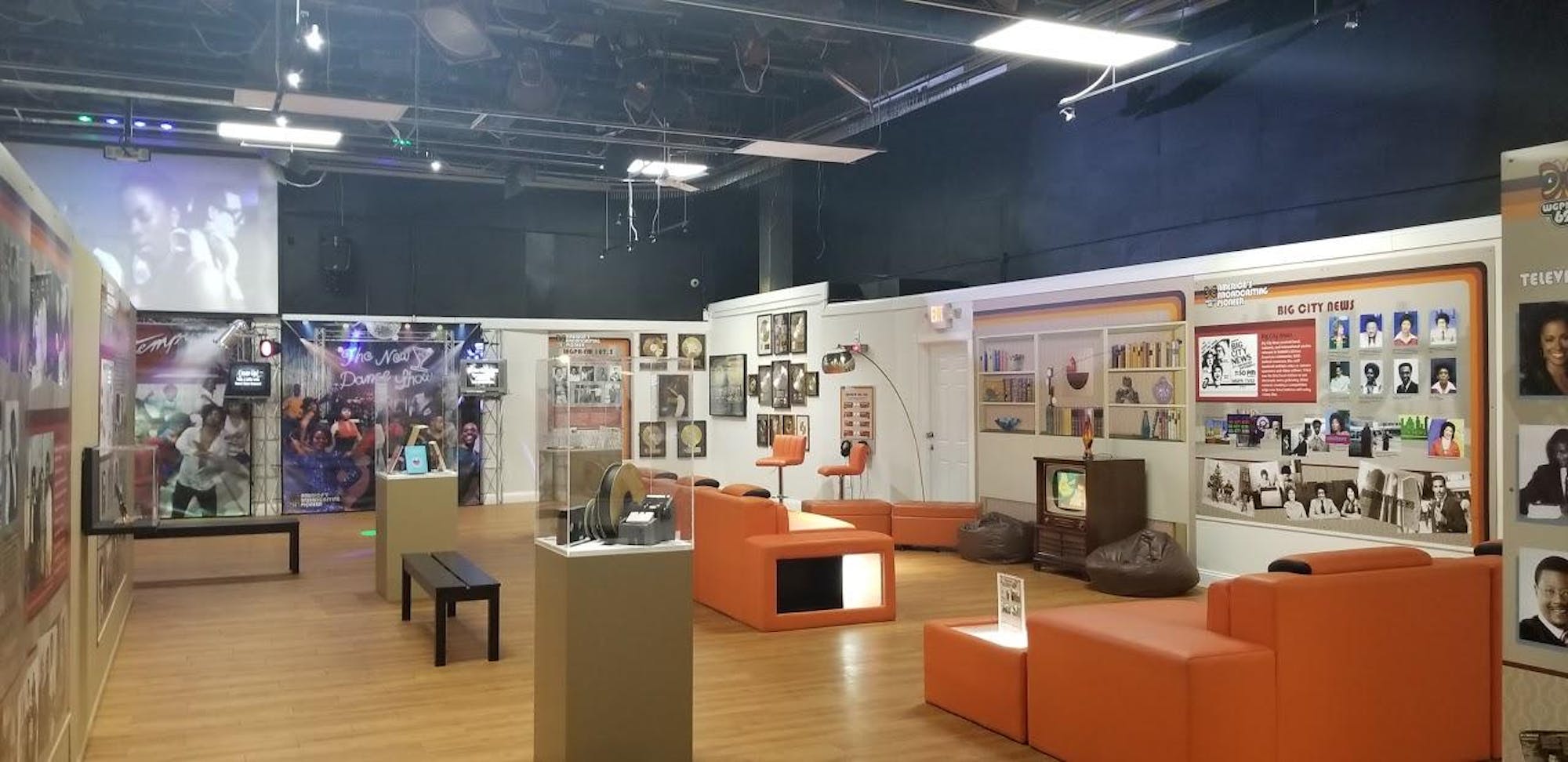Southwest Michigan is full of opportunities for those seeking to learn a little more about Black history in America during Black History Month. From museums to bead shops and outdoor installations, the day trips listed below are just a few of the places offering opportunities to study and appreciate Black and African American culture, experience and history. The following museums and cultural opportunities can all be visited and enjoyed in just a day's time from Ypsilanti and the Eastern Michigan University campus.
Charles H. Wright Museum of African American History
The Charles H. Wright Museum of African American History has been a crucial Detroit landmark for more than 50 years.

A visitor peruses one of the exhibits at the Charles H. Wright Museum of African-American History on East Warren Avenue in Detroit. (Photo: Charles H. Wright Museum of African-American History)
The museum's mission and vision statements focus on a need to preserve and celebrate the achievements and the adversity African Americans faced throughout history, with a goal of inspiring and unifying future generations.
The Wright houses several exhibits for the public to visit throughout Black History Month. Among them:
The Ruth E. Carter: Afrofuturism in Costume Design exhibit showcases the two-time Academy Award winning designer’s costumes from iconic movies such as "Black Panther," "Malcolm X," and "Do The Right Thing."
The new Adreinne Waheed: The Audacity to Thrive exhibit explores what it truly means to be audacious and celebrates the ways Black communities have challenged conventional ways of thinking.
Other available exhibits include John E Dowell: Paths to Freedom and Honoring the Life and Legacy of Judge Damon J. Keith.
At 315 E. Warren Ave., the Charles H. Wright Museum of African American History is open from 9 a.m. to 5 p.m. Tuesday, Wednesday, Friday, Saturday and Sunday; and from 9 a.m. to 7 p.m. Thursdays. More information can be found at www.thewright.org.
Plowshares Theatre Company
The Plowshares Theatre Company produces shows that celebrate the history and passion of Black experiences throughout history. The company's mission statement explains that it is necessary to preserve these experiences to challenge minds and strengthen communities, and the company does so by engaging three core values: affirm, educate and inspire.

Actors from the Plowshares Theatre Company in Detroit perform on stage during a recent production. (Photo: Plowshares Theatre Company)
The company is kicking off its 2024 season with a production of "The House that Will Not Stand" by Marcus Gardley, which touches on the strengths and humanity of Black women. Set in early 19th-century New Orleans, "The House that Will Not Stand" is about widowed mother Beatrice and the challenges she faces raising her three daughters after the death of her husband. As Beatrice adapts to her new life as head of her household, a more ominous transfer of power is transpiring the region. The production runs through Feb. 26. Tickets can be purchased at the door.
The Plowshares Theatre Company is at 440 Burroughs St., Suite 525, in Detroit, Mich. For more information about current and future productions, visit www.plowsharestheatre.org.
William V. Banks Broadcast Museum
The William V. Banks Broadcast Museum is in the historical WGPR-TV62 studios, the first African American-owned and operated television station in the U.S.

The William V. Banks Broadcast Museum houses memorabilia and exhibits exploring the founding and operation of Black-owned WGPR-TV62 in the station's former studios at 3146 East Jefferson in Detroit. (Photo: William V. Banks Broadcast Museum)
Broadcast pioneer William V. Banks founded the station in 1975 amid mass skepticism and condemnation. Banks had a vision and despite criticism, succeeded in establishing a successful station that amplified Black voices, businesses and music. The William V. Banks Broadcast Museum opened in 2017 to showcase artifacts, oral histories, video archives, and other memorabilia.
The studio and museum are at 3146 E. Jefferson in Detroit and are open Saturdays as well as the first Friday of every month from 11 a.m. to 4 p.m. More information about the studio and museum can be found at www.wgprmuseum.org.
Dabls MBAD African Bead Museum
The Dabls MBAD African Bead Museum is a creative space that celebrates African heritage through the cultural significance of beads and other African art styles.
Founded by Olayami Dabls, the museum consists of 18 outdoor installations known as the Sculpture Garden, which spans almost an entire city block in Detroit. Among these installations is the piece “Iron Teaching Rocks How to Rust," which uses iron, rocks, wood and mirrors as a metaphorical response to the 500-year-long strained relationship between African and European heritages.
According to the museum website, Dabls sought to educate others about the significance of African beads, masks and other art styles because for years their importance was misunderstood and even feared due to racism. Dabls began the project more than 16 years ago outside traditional museum guidelines and established a permanent celebration of African culture, tradition and heritage. Apart from the outdoor installations, the public can visit the African Bead Gallery, N’kisi House and the African Language Wall on the property.
The museum and bead shop are at 6559 Grand River Ave. in Detroit and are open from noon to 7 p.m. Monday through Saturday. More information about the museum and shop can be found at www.mbad.org.










